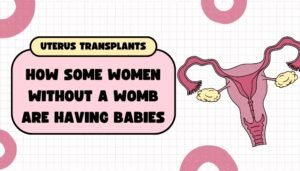Artificial Womb Experiments: Progress in Growing Lamb Fetuses Outside the Uterus
Introduction For premature babies, every extra day in the womb can be critical to lung and organ development. Yet despite neonatal intensive care advancements, extremely preterm infants still face high risks of mortality or lifelong complications. Artificial womb experiments—where fetal...
Read MoreUterus Transplants: How Some Women Without a Womb Are Having Babies
Introduction Infertility impacts millions worldwide, and for some women, the issue is the absence or dysfunction of the uterus. Known conditions like Mayer-Rokitansky-Küster-Hauser (MRKH) syndrome leave some females without a functional womb, while others lose theirs to hysterectomy or medical...
Read MoreFirst Postpartum Depression Pill: FDA Approves New Treatment for New Moms
Introduction Postpartum depression (PPD) is a significant mental health concern that affects many new mothers. Although the arrival of a baby usually brings excitement, a notable percentage of women experience persistent sadness, guilt, or difficulty bonding with their newborn. These...
Read MoreOTC Birth Control Pill: What the FDA Approval of Opill Means for Women
Introduction Birth control plays a central role in women’s reproductive healthcare. Various methods exist, such as condoms, intrauterine devices (IUDs), implants, patches, and daily oral pills. Historically, hormonal birth control pills have required a prescription in most countries, including the...
Read MoreFirst RSV Vaccines for Babies and Seniors: A New Era in RSV Prevention
Introduction Respiratory syncytial virus (RSV) is a viral pathogen that poses a serious health risk for infants and older adults. The virus affects the lower respiratory tract, often leading to difficulty in breathing, reduced oxygen levels, and a higher rate...
Read More




